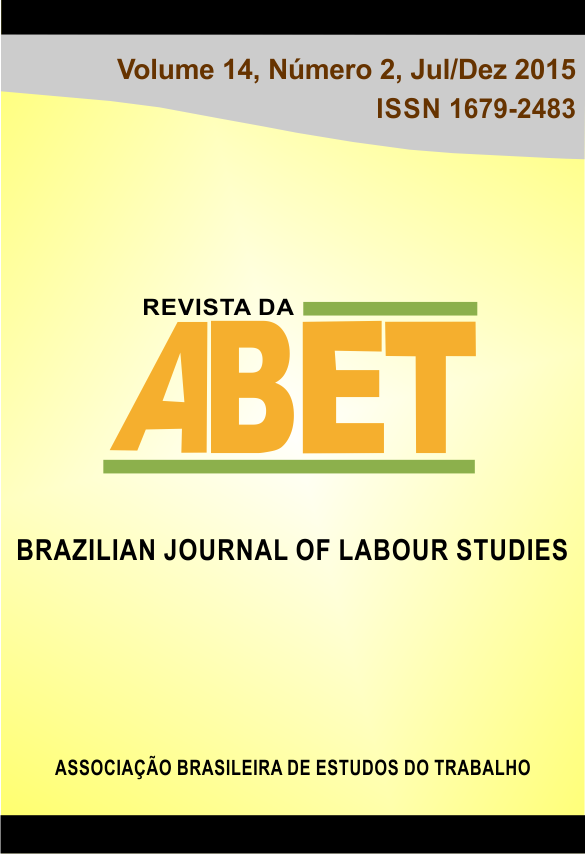DYNAMICS OF SPANISH DEVELOPMENT AND ITS IMPACT ON EMPLOYMENT
Abstract
This article discusses the evolution of the Spanish economy during the second half of the twentieth century and early 2000s, trying to show through a historical and econometric understanding the strong influence that the construction industry has had on the level of employment. Such influence as will be discussed throughout this article, the result of a set of economic policies aimed at obtaining villas by families. These same economic policies begin with the dictatorship of Francisco Franco with its development strategy anchored in public policy for housing. Over the years 80, 90 and the 2000s, the sector of construction and real estate has gone through several changes in the way it operates in the promotion of villas, in a context characterized by a strong economic deregulation and restriction of macroeconomic policies resulting from the Treaty Maastricht. Before these same macroeconomic constraints, the Spanish unemployment was relatively low due to the financial incentives that boosted the construction sector, the latter being a major contributor to the low unemployment in Spain, as discussed throughout this paper.
Downloads
Downloads
Published
How to Cite
Issue
Section
License
Política de Acesso Livre
Esta revista oferece acesso livre imediato ao seu conteúdo, seguindo o princípio de que disponibilizar gratuitamente o conhecimento científico ao público proporciona maior democratização mundial do conhecimento.
Atribuição dos artigos é não comercial (sem derivações 4.0, isto é, Creative Commons) e o acesso é livre e gratuito para download e leitura.
Não há taxa para submissão, avaliação e publicação de artigos.
Copyright
1) Os artigos são de responsabilidade exclusiva dos autores. É permitida sua reprodução, total ou parcial desde que seja citada a fonte.
2) Os trabalhos enviados para publicação devem ser inéditos, não sendo permitida sua apresentação simultânea em outro periódico nacional.
3) Os artigos são submetidos a pareceristas "ad hoc", após prévia avaliação da Comissão Editorial, os quais podem aceitar, recusar ou reapresentar o original ao autor com sugestões para alterações. Os nomes dos pareceristas permanecem em sigilo, bem como os nomes dos autores.
Os Autores que publicam nesta revista concordam com os seguintes termos:
Autores mantêm os direitos autorais e concedem à revista o direito de primeira publicação, com o trabalho simultaneamente licenciado sob a Creative Commons Attribution License, permitindo o compartilhamento do trabalho com reconhecimento da autoria do trabalho e publicação inicial nesta revista.
Autores têm autorização para assumir contratos adicionais separadamente, para distribuição não-exclusiva da versão do trabalho publicada nesta revista (ex.: publicar em repositório institucional ou como capítulo de livro), com reconhecimento de autoria e publicação inicial nesta revista.
Autores têm permissão e são estimulados a publicar e distribuir seu trabalho online (ex.: em repositórios institucionais ou na sua página pessoal), já que isso pode gerar alterações produtivas, bem como aumentar o impacto e a citação do trabalho publicado.
Patrocinador
A publicação recebe financiamento da Associação Brasileira de Estudos do Trabalho.










